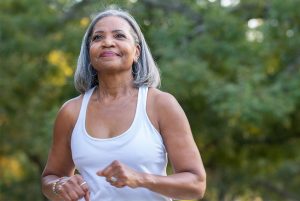Regular physical activity plays a significant role in supporting and enhancing women’s health at every stage of life. From cardiovascular health to mental well-being, exercise has transformative effects that extend beyond just physical appearance. Let’s dive into the specific benefits and understand why incorporating regular exercise can be one of the most empowering choices for women.
1. Boosting Cardiovascular Health
Cardiovascular disease is one of the leading causes of death among women. Exercise plays a critical role in reducing risks by improving blood flow, lowering blood pressure, and helping manage weight. Regular aerobic activities, like walking, running, and swimming, strengthen the heart, enhance lung capacity, and reduce cholesterol levels. Engaging in these activities consistently can significantly lower the risk of heart-related ailments, making exercise a vital component of heart health.
2. Strengthening Bones and Joints

Women are at a higher risk of osteoporosis, especially post-menopause when bone density naturally decreases. Weight-bearing exercises, like strength training, resistance exercises, and even yoga, stimulate bone formation and slow down bone loss. Strengthening bones not only reduces the risk of fractures but also improves posture and balance, which are essential for maintaining mobility as women age.
3. Enhancing Mental Health and Reducing Stress

Exercise is a powerful tool for mental health, providing numerous benefits that can help combat stress, anxiety, and depression. Physical activity triggers the release of endorphins, often called “feel-good” hormones, which act as natural mood lifters. Additionally, regular exercise helps reduce the levels of cortisol, the body’s primary stress hormone. Studies have shown that women who exercise regularly report higher levels of happiness, reduced symptoms of depression, and an overall positive outlook on life.
4. Improving Reproductive Health

Exercise plays a supportive role in reproductive health by promoting a healthy hormonal balance. Physical activity helps regulate menstrual cycles, reduces symptoms of premenstrual syndrome (PMS), and can even ease menopausal symptoms. For women with polycystic ovary syndrome (PCOS), a condition that affects reproductive health, exercise aids in managing weight and balancing insulin levels, which are crucial factors for overall health and well-being.
5. Supporting Weight Management and Body Confidence

Exercise is essential for maintaining a healthy weight, especially in the face of changing metabolism as women age. While a balanced diet is vital, pairing it with regular physical activity can prevent unwanted weight gain and support weight loss goals. Beyond the scale, however, regular exercise fosters a greater sense of body confidence. As women become stronger, more resilient, and in tune with their bodies, they often experience an increase in self-esteem and body positivity.
6. Building Muscular Strength and Endurance

Women can benefit from strength training exercises to build and maintain muscle mass, which naturally declines with age. Increasing muscle strength helps in daily activities, improves stamina, and reduces the risk of injuries. Enhanced muscular endurance also positively impacts energy levels, allowing women to be more active and engaged in their day-to-day lives.
7. Promoting a Healthy Sleep Pattern

Sleep is essential for optimal health, but many women struggle with sleep quality due to various lifestyle and hormonal factors. Regular physical activity has been proven to help regulate sleep patterns, making it easier to fall asleep and stay asleep. Exercise improves sleep by promoting deeper, more restful sleep cycles and reducing insomnia, which is common in women, especially during periods of hormonal shifts.
8. Reducing the Risk of Chronic Diseases

Exercise significantly lowers the risk of chronic illnesses such as diabetes, hypertension, and certain types of cancers. Regular physical activity helps regulate blood sugar levels and improves insulin sensitivity, reducing the likelihood of Type 2 diabetes. In addition, maintaining a healthy weight and lifestyle through exercise is linked to a lower risk of breast and colon cancers, giving women another reason to prioritize movement in their routines.
9. Enhancing Longevity and Quality of Life

Studies have shown that regular physical activity is associated with a longer life expectancy and a higher quality of life. Exercise contributes to improved immune function, healthier organs, and greater overall resilience, which can slow down the aging process. Women who exercise regularly tend to report higher satisfaction with their lives, fewer health problems, and better physical functioning even in older age.

Final Thoughts
The benefits of exercise for women are extensive, positively impacting physical health, mental well-being, and even longevity. Adopting an exercise routine, whether it’s yoga, running, dancing, or strength training, can be life-changing for women of all ages. Embracing exercise as a lifestyle choice is a powerful step toward a healthier, happier, and more empowered life.